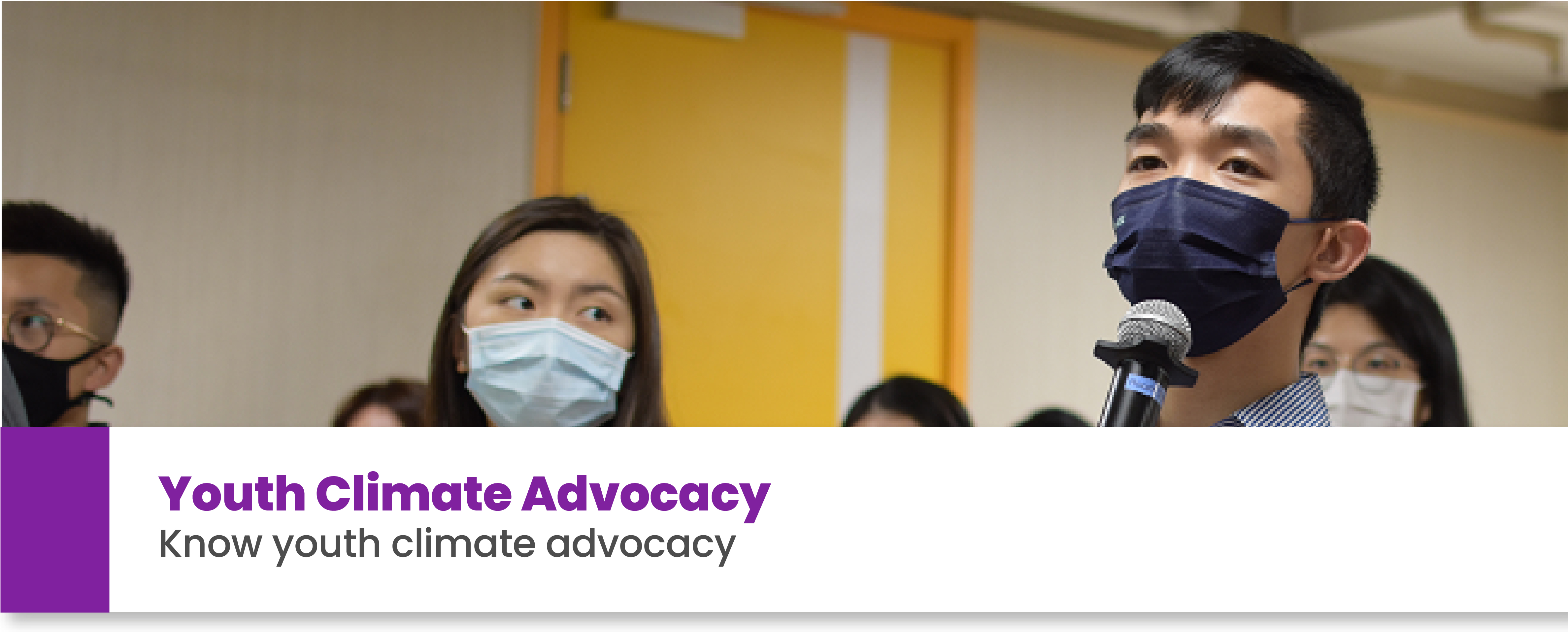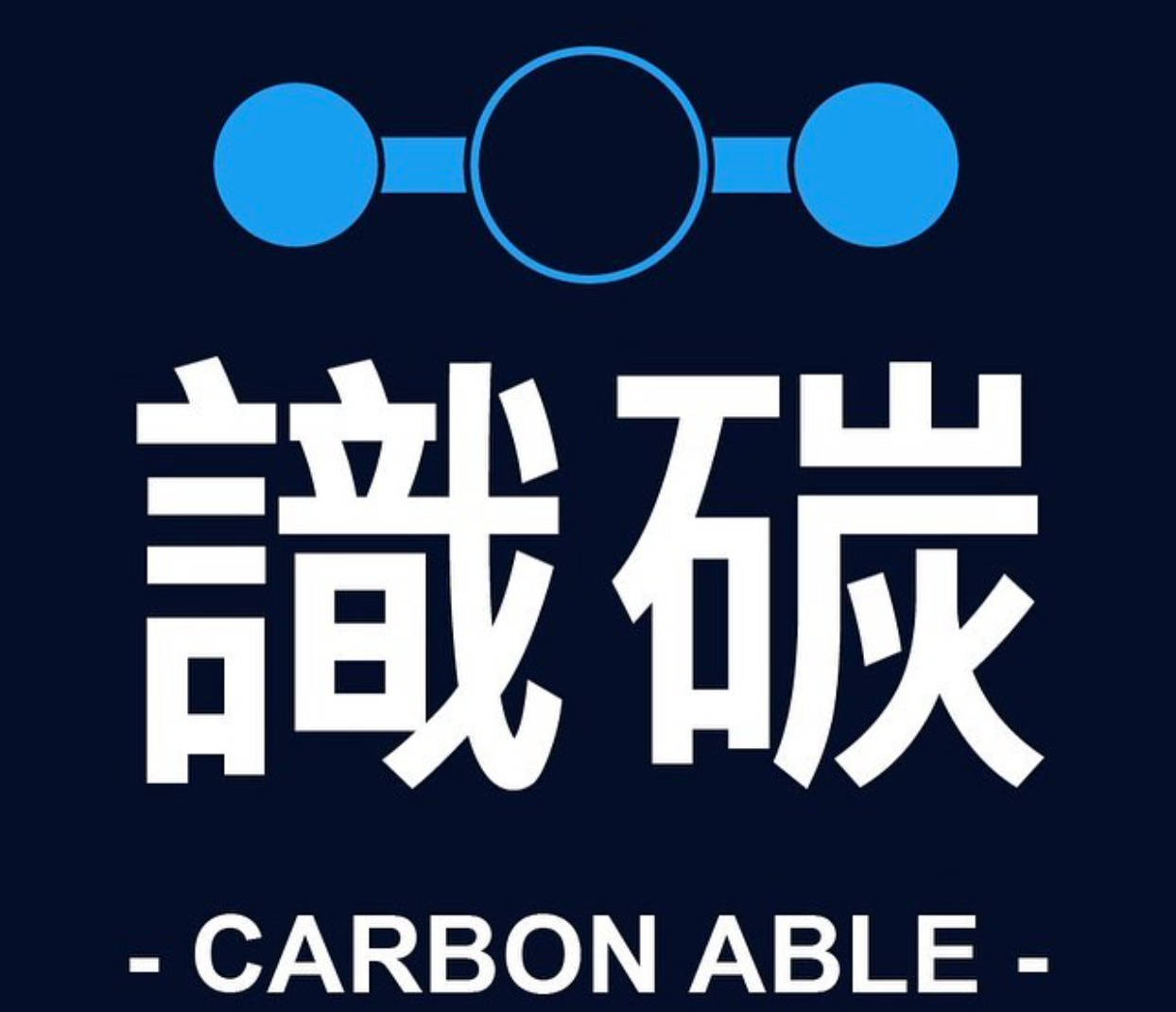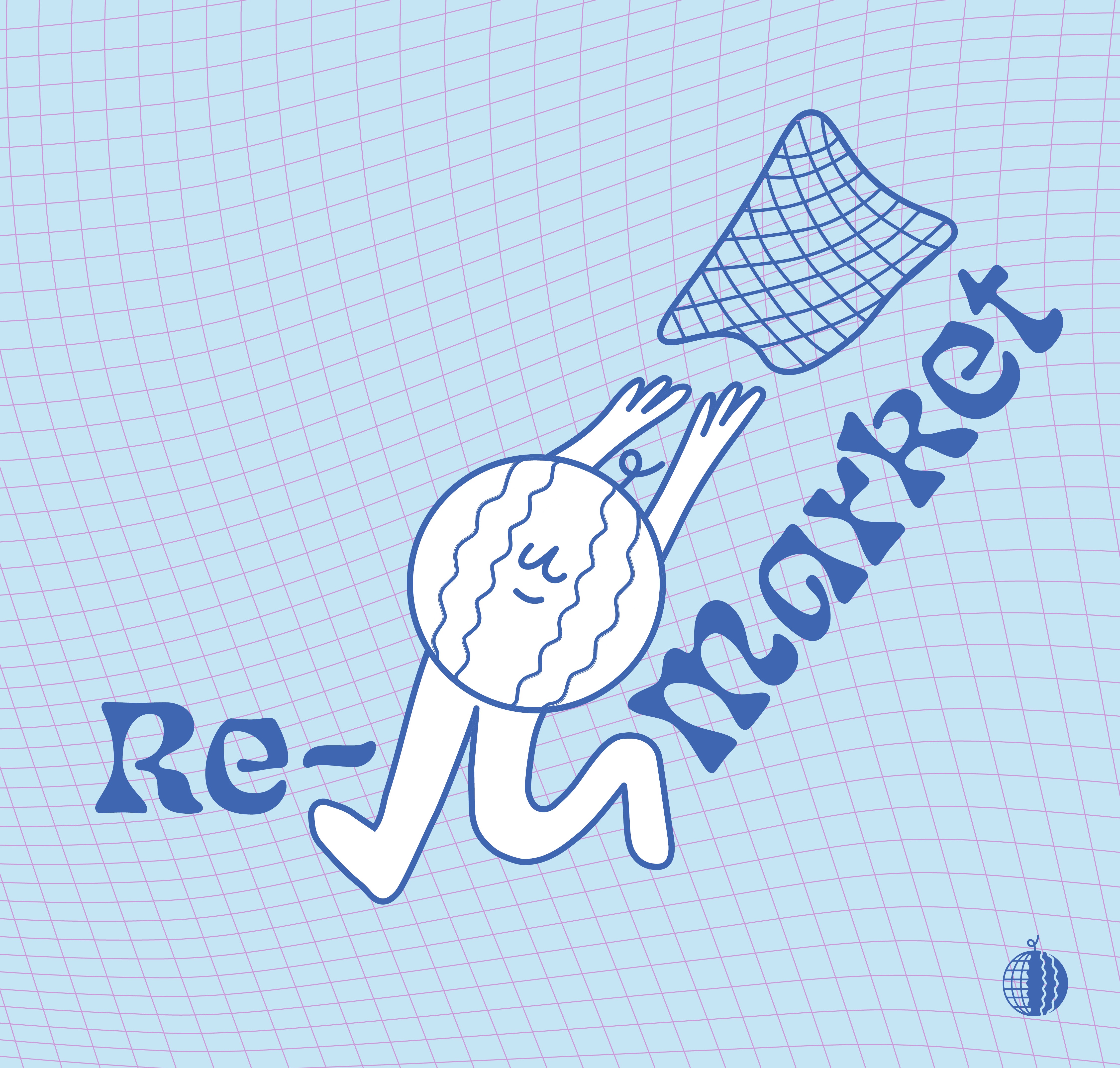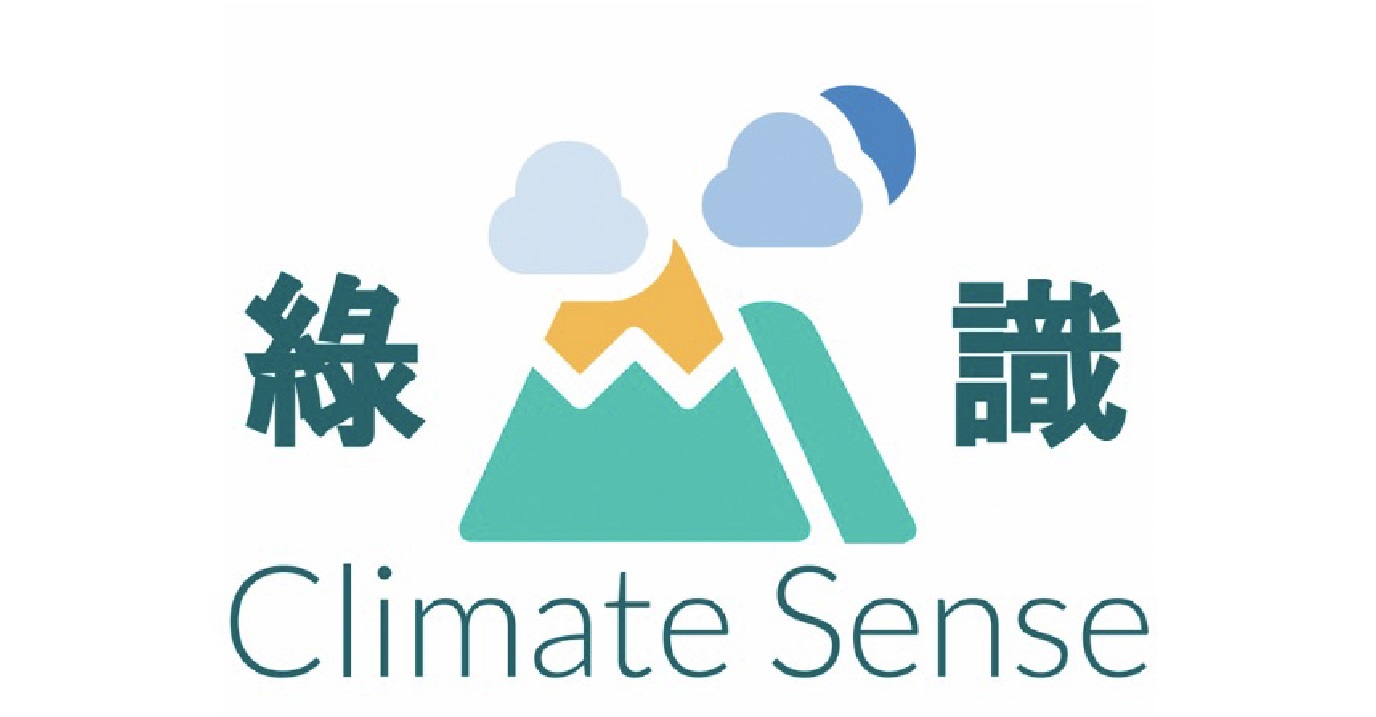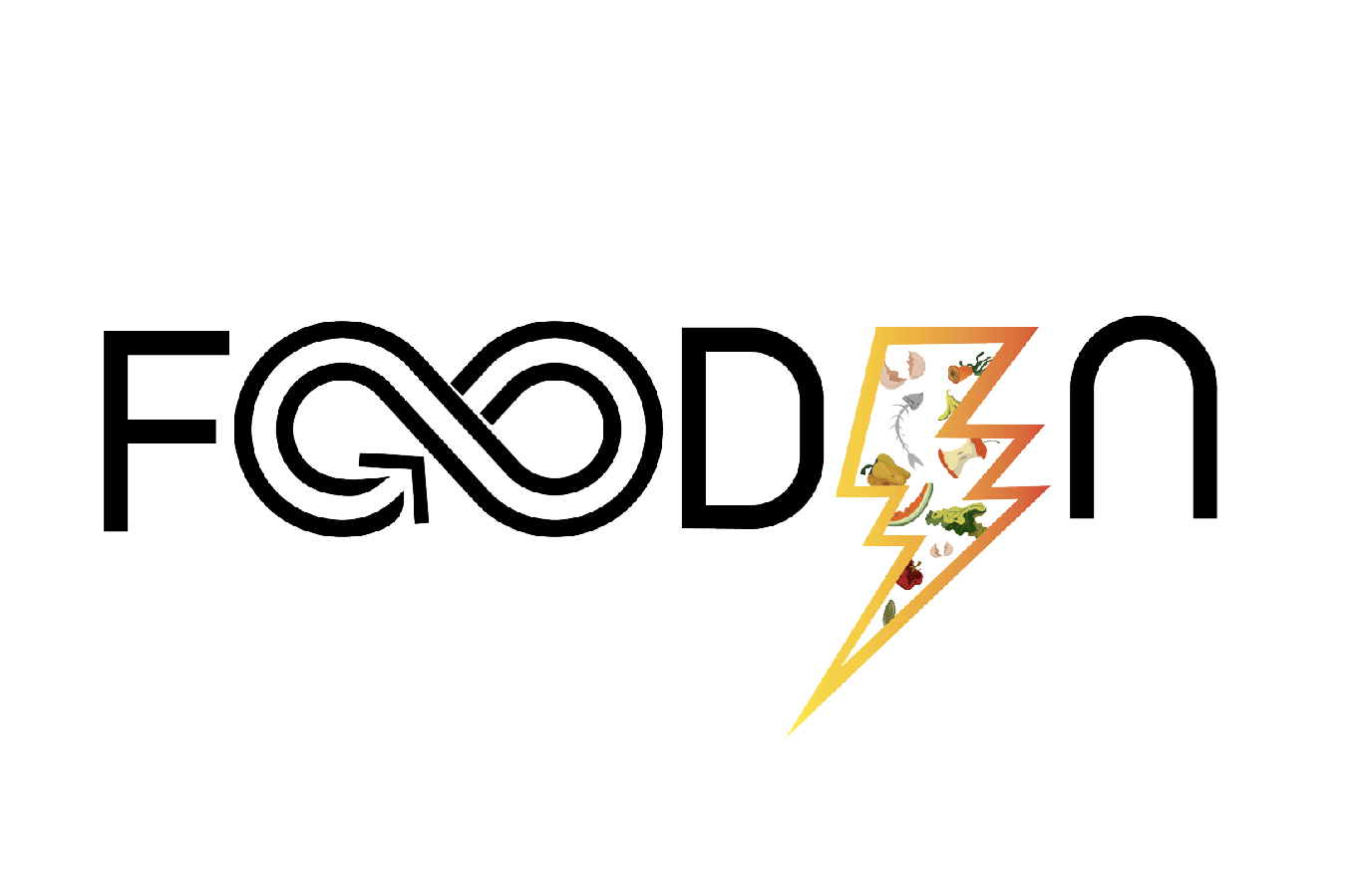CATY encourages students to practice the advocacy knowledge and skills they learned from the training. CATY students initiate their climate advocacy projects according to the climate issues that they concerned, urging the government and stakeholders to take a more ambitious and committed climate action in achieving carbon neutrality before 2050, and strive to limit global warming to 1.5 degrees Celsius and realise climate justice.
CATY students from cohort 4 initiated the community climate advocacy projects below from April 2023 to April 2024.
Healing Parks Concerned about the design of Hong Kong's parks, they found that the urban parks as a feasible tool to cope with climate change, however, the Government in its climate blueprint on its ability to mitigate and cope with climate change is obviously not enough, coupled with the Government's parks design does not have a significant update and a clear direction of the blueprint for planning in order to strengthen Hong Kong's ability to cope with climate change. Therefore, Healingn Parks has put forward three major proposals to the Government to enhance Hong Kong's climate resilience:
- Conduct a Climate Adaptation Assessment to measure the impact of climate change on various ecosystems, communities, and vulnerable stakeholders in Hong Kong.
- Incorporate criteria related to climate mitigation and adaptation functions when maintaining existing parks and updating park design guidelines, to enhance the sustainability and climate resilience of parks in the face of climate change.
- Establish a cross-departmental team to jointly address climate change in parks and improve their sustainability and climate adaptation.
Carbon Able concerned about the carbon emissions of consumer products in Hong Kong. They found that as long as the prices of low-carbon commodities were relatively reasonable, consumers would be more willing to support businesses and products with sustainable development, and it was also found that the earlier the implementation of carbon labeling, the greater the economic benefits. It is also found that the earlier the carbon label is implemented, the greater the economic benefits. Therefore, if carbon labeling can complement the promotion of the concept of low-carbon commodities, it will be conducive to the promotion of low-carbon commodities in Hong Kong. Therefore, we advocate the Government to implement the following two policies:
- To implement carbon labeling requirements covering all goods sold in Hong Kong
- Enhance the transparency of carbon emission information and consumer autonomy in shopping
EATcofriendly concerned about the food system in Hong Kong. They found that the total emissions from the global food system accounted for 21-37% of the global carbon emissions. According to the results of an interview on low-carbon diet, 70% of the interviewees supported the Government's implementation of policies related to green procurement, which shows that Hong Kong people's awareness and acceptance of low-carbon diet have increased significantly, and therefore advocate the Government's implementation of the following three major policies to help Hong Kong achieve carbon neutrality:
- Incorporating food system emissions reduction into Hong Kong's Climate Action Plan 2050.
- Adding more food procurement guidelines to the green procurement policy.
- Modifying and updating dietary guidelines to consider climate factors.
CATY students from cohort 3 initiated the community climate advocacy projects below from April to August 2022.
The Carbon Procurement Department (CPD) is concerned about the green procurement issue. Green public procurement is a tool for the government to make purchases of products and services that have little or no adverse effects on the environment. CPD discovered that the ratio of green procurement to the total amount of government procurement was extremely low, just occupied 2%, so CPD advocacy The HKSAR government should be leading by example and implement policies and measures in the following 4 aspects to reach 3 targets to achieve carbon neutrality: To meet the carbon neutrality goal by 2050, we must reduce greenhouse emissions to net zero. 4 aspects are:
- The government should take a leading role in enhancing green procurement practices
- The government should collaborate and support green buying groups in the private sector, including HKGPC, to increase their influence on green procurement
- The government should create transparency in CO2 emissions baselines and targets in public procurement. In addition, the government should communicate with suppliers to reduce carbon emissions
- The government should introduce CO2 reduction measures and criteria in supplier assessment and improve green procurement
EMPOWER is a energy poverty advocacy group, concern about energy poverty. The purposes of launching EMPOWER are to help underprivileged people speak up, fight for climate justice, raise awareness of society's concern about energy poverty, and encourage the government to review and complete energy policies to mitigate the effects of climate change on low-income citizens. EMPOWER discovered that the measures that help low-income citizens relieve extreme heat are insufficiency through a survey, so EMPOWER advocacy:
- Set up task force for tackling energy poverty issue
- Formulate definition and indicators of energy poverty suitable for local context
- Establish high-temperature subsidies
- Establish subsidies for low-income citizens residing in inadequate housing to replace old electrical appliances with high energy efficiency appliances (e.g. Grade 1-3 energy labels)
EMPOWER intends to draft and submit an advocacy document to the relevant department, urging the government to complete policies on energy poverty through various methods.
Packular concern about the e-commerce plastic packaging waste increasing problem and the circular economy in Hong Kong. Packular discovered that the amount of e-commerce plastic packaging waste is increasing due to the impact of the epidemic, e-commerce plastic packaging produced due to the rising demand for online shopping will impact human health and ecology, and also the burden of landfills. On the other hand, Packular discovered that Hong Kong lacks comprehensive circular economy policies. So Packular hopes to help Hong Kong achieve carbon neutrality through two main advocacy directions:
- Collaboration of government and e-commerce companies to launch reusable packaging system to implement all-around plastic-free on e-commerce packaging
- Implement policies to ban on disposable e-commerce plastic packaging to let government to launch a complete circular economy policy.
Packular will submit a detailed proposal for the advocacy plan in the future, interview and launch a circular economy alliance with related stakeholders, promote circular economy to citizens on social media, and increase their knowledge of it.
Re-Market concern on supermarket overpackaging problem. Re-Market discovered that the government has no clear goal for reducing plastic consumption in the retail industry and that supermarkets have no blueprint for carbon reduction. According to the survey results about supermarket overpackaging launched by Re-Market, most respondents consider that fresh vegetables and fruits are overpackaging, so Re-Market advocacy:
Supermarket:- Urge supermarkets to disclose plastic packaging information in response to citizens' requests, and suggest best practice among the industry.
- Suggest supermarkets to launch a trial scheme of package-free produce, and propose a blueprint for reducing plastic packaging for fresh produce.
- Request supermarket to follow the Practical Guide on Packaging Reduction And Management – Supermarkets and Grocery Stores Sector released in May,2022.
- Urge the government to step up promotion of purchasing non-packaged products in the community.
CATY students from cohort 2 initiated the community climate advocacy projects below from November 2021 to March 2022.
Climate Household Adaptation focuses on Hong Kong household thermal comfort issue. They think the climate adaptation work can further be broadened and improved in Hong Kong’s Climate Action 2050. Hence, they have three suggestions for the government.
- Increase the climate adaptability of the existing residential building, in order to adapt to extreme weather events.
- Enhance the public’s understanding and action on climate adaptation by setting up a two way and effective information sharing platform.
- Disclose the progress of achieving energy saving targets to enhance transparency.
Climate Sense focuses on climate change education in Hong Kong. They discovered that the lesson hours covering climate change education in the current curriculum in primary and secondary schools remain insufficient. Training resources on climate change
education for teachers fall short as well. The current way in which the curriculum is delivered fails to cultivate the sense of civic responsibility and agency to act on climate crises. Therefore, they are calling for actions from the government and education sector:
- Establish a Climate Change Education Task Force chaired by Education Bureau and Environment Bureau and academia;
- Set minimum learning hours for climate change education in primary and secondary school;
- Provide resources for schools to recruit additional personnel dedicated to promoting climate change education;
- Provide principals, teachers, and teachers-in-training with training on climate change education
Community Climate Resilience Centre focuses on climate justice issue in Hong Kong, and advocates for increasing community climate change resilience for households in inadequate housing. There are 5 key recommendations highlighted below:
- Reimagine the concept of temporary shelters and rename the shelter to be Community Climate Resilience Shelter
- Increase provision of temporary shelters / community climate resilience centre and increase their accessibility
- Relax opening requirements for temporary shelters
- Provide human-centred facilities at temporary shelters
- Improve information dissemination system to community
FoodEN focuses on food waste recycling and waste-to-energy policies. They found out the low recycling rate of domestic food waste stems from the low usage food waste resources and waste-to-energy facilities, lack of supporting systems, insufficient public education on food wastes recycling and the paucity of a comprehensive recycling system for domestic food waste. In order to address the food waste issues, FoodEN advocates the following ideas to the Government:
- Increase public education on food waste recycling and general knowledge on food-waste-to-energy
- Set up a comprehensive domestic food waste recycling system to utilise the current capacity of food-waste-to-energy facilities
CATY students from cohort 1 initiated the community climate advocacy projects below from November 2020 to March 2021.
Aviation Tax Advocacy Group focuses on the carbon emission from aviation industry, thereby advocating for investigation the feasibility of aviation tax by the government. This group suggest the government and the aviation industries to initiate a plan of slowing down the increasing rate and decreasing carbon dioxide emission from aviation, to achieve the target of net carbon emission in 2050. They proposed three possible ways of implementing aviation tax.
- Aviation ticket tax based on lifecycle carbon emissions of fuel used
- Ticket tax with differentiation according to distance flown
- Differentiation of the aviation ticket tax on the basis of NOx emissions
Carbon Romove focuses on and advocating for carbon removal in Hong Kong. Carbon emissions are 59% more than natural carbon sequestration, and there is definitely potential to prevent climate change crises through carbon sequestration.
Eco-nnect Hong Kong focuses on the ecology marketing.
Solmunity focuses on the development of solar energy in Hong Kong, aiming to promote energy transition and the progress of achieving carbon neutrality in Hong Kong. Based on expert and public perspectives, Solmunity are calling for four demands to the government:
- Set an ambitious and clear solar development goal by increasing the proportion of solar power generation to 10% by 2030
- Release public space for installation of solar panels
- Allow the participation of communities in solar installation, so that citizens can decide the allocation of public resources in their own communities
- Urge the Government to proactively formulate the "Hong Kong Climate Action Blueprint", which sets out specific targets for drastic reduction in carbon emissions, a timetable for achieving the targets, and performance indicators
SDGs

